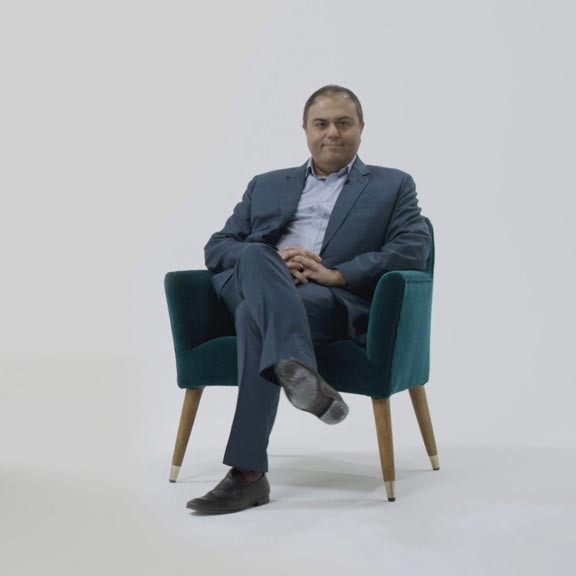Prostate surgery and laser prostate surgery at Spire Little Aston Hospital
Treatment to reduce an enlarged prostate that is causing problems.
At Spire Little Aston Hospital, our consultants provide prostate surgery for an enlarged prostate (benign prostatic hyperplasia, BPH) to relieve urinary difficulties.
Symptoms are caused by the enlarged prostate pressing on your urethra and bladder. Your consultant can treat this by removing or destroying prostate tissue.
Sometimes also called
- Transurethral prostatic resection
- TURP procedure or TURP surgery
- Transurethral resection of the prostate (TURP)
- Laser prostate surgery (HoLEP or GreenLight)
- UroLift®
- Aquablation® therapy
The procedure(s) listed above are examples only and may not be available at all Spire hospitals.
At a glance
-
Typical hospital stay
1-3 nights -
Procedure duration
45-90 minutes -
Type of anaesthetic
General, spinal, epidural or local -
Available to self-pay?
Yes -
Covered by health insurance?
Yes
Why Spire?
- Fast access to diagnostic tests and scans
- Internationally and nationally renowned consultants
- Clear, inclusive pricing
- Rated 'Good' by the Care Quality Commission
Prostate surgery: what to expect at Spire Little Aston Hospital
At Spire Little Aston Hospital, we provide comprehensive treatments and care from our comfortable private hospital in Sutton Coldfield, near Birmingham city centre.
Our urologists are specialists in men’s health and have expertise in prostate surgery. Our dedicated nurses will provide you with expert aftercare, to help you get back to your usual activities as soon as possible.
You can expect fast access to diagnostic tests and scans, consultations and treatments. It usually takes 10 days from referral or diagnosis by your consultant to having prostate surgery.
How much does Prostate surgery and laser prostate surgery cost at Spire Little Aston Hospital
It's a common operation to have done privately, and our inclusive prices and access to payment plans make it easy and more affordable, even if you don’t have medical insurance.
| Prostate resection (TURP) | |||
|---|---|---|---|
| Initial consultation | £200 | ||
| Treatment price | £7,272 | ||
| Aftercare | Included | ||
| From price | From £7,472 | ||
|
Monthly treatment price (Loan applicable to the treatment cost and excludes the initial consultation) |
£299 | ||
| Representative example | |
|---|---|
| Loan amount | £6,522 |
| Deposit | £750 |
| Loan period | 24 months |
| Representative APR | 9.9% |
| Total amount repayable | £7,176 |
The price shown is the ‘from price’ (ie the minimum cost of the procedure). Please note that for some procedures the actual price you are quoted may vary significantly and can increase depending on your choice of Consultant (who is an independent practitioner and not an employee of Spire). The fees charged by Consultants and Anaesthetists are set independently and are outside the control of Spire. The price may also vary depending on the type of anaesthetic, implant or drug used, and your medical history.
Spire Little Aston Hospital can provide you with a single, fixed price for your procedure so there are no surprises. Please read Spire Healthcare's terms and conditions for full details of what’s included and excluded in your fixed price when paying for yourself. Finance options are available through our partner Omni Capital Retail Finance Ltd, 10 Norwich Street, London, EC4A 1BD.
Procedures offered for prostate surgery at Spire Little Aston Hospital
We have a range of procedures available for prostate surgery. All have their own potential benefits and risks which your consultant will discuss with you.
The type of anaesthetic you need varies depending on the procedure you need. It may be:
- A general anaesthetic meaning you’re asleep – this is most often used
- A spinal or epidural – where you can’t feel anything from the waist down
- A local anaesthetic – you’ll be awake but you won’t be able to feel anything in the area being operated on
Transurethral resection of the prostate (TURP)
- A special instrument is passed through your urethra and a small, electrically-heated wire is used to trim small pieces of prostate tissue
- Performed under general anaesthetic
- You’ll need a urinary catheter for around one to three days after the operation
Transurethral electrovaporisation of the prostate (TUVP)
- Similar to TURP, but a rollerball instead of a wire loop is used to apply electrical energy to the tissue
- Performed under general or spinal anaesthetic
- A catheter is still required, but may be for a shorter time than TURP
Laser prostate surgery
- A specialised tool is passed through your urethra and a laser (eg a HoLEP Holmium laser or GreenLight laser) which generates intense heat is used to trim small pieces of prostate tissue
- Performed under general anaesthetic
- You usually need a urinary catheter for around one to two days after the operation, but it may be for a shorter time than with a TURP
UroLift (prostatic urethral lift (PUL) implants)
- Instead of removing prostate tissue, implants are positioned to hold your prostate out of the way and increase the width of your urethra
- This procedure can be performed under general or local anaesthetic
- Usually, a urinary catheter isn’t required
Prostate artery embolisation (PAE)
- Shrinks the size of your prostate by blocking the arteries that feed it
- Performed using local anaesthetic
- A urinary catheter isn’t usually required
Water ablation
- Water or steam under pressure is used to destroy prostate tissue
- Performed using general or spinal anaesthetic
- You’ll need a urinary catheter, usually until you leave the day after
Your consultant will recommend a treatment based on your condition and overall health.
Find a consultant at Spire Little Aston Hospital
Preparing for prostate surgery at Spire Little Aston Hospital
Coming into hospital
You can find us just to the north of Sutton Coldfield. We're a short 25 minute drive from Birmingham city centre. Birmingham New Street is the nearest mainline train station to Spire Little Aston Hospital, and Blake Street train station is the closest station to the hospital. There’s free parking available for you and your visitors.
Meeting your consultant
You’ll meet your consultant in one of our consultation rooms. You’ll discuss:
- Your symptoms and medical history
- If your consultant requires any additional tests or scans to help plan your treatment
- Alternative treatments or lifestyle changes which may help
- What the treatment involves and procedure options
- Potential benefits and risks of prostate surgery
You will also need a pre-operative assessment with a specialist nurse before going ahead with treatment. This is to ensure you're fit and well enough for surgery.
Prostate surgery: your procedure
You’ll usually stay with us for one to two nights so you’ll be shown to your own en-suite room before your operation. All of our private rooms have:
- TV
- En-suite
- Window
- Armchair
- Telephone
- Patient information booklet
The procedure lasts for 45 to 90 minutes. If you’ve come with a friend or family member, they’re welcome to wait in our coffee lounge and restaurant while you have your operation.
You may need a urinary catheter after the operation. This is because your urethra may be swollen which can block urine from passing. It will be removed before you leave hospital.
Prostate surgery: your recovery
As expected after surgery, you’ll feel some pain afterwards. Our nurses will help you manage this by giving you painkillers and advice about what over-the-counter medicines you can take after you leave hospital.
Although the recovery time varies depending on the procedure you've had and your overall health, here’s a guide to recovery timeline for transurethral resection of the prostate (TURP) – the most common procedure:
Treatment and recovery timeline

1-3 days
Catheter is removed and you can leave hospital
1-3 weeks
Driving and gentle walking
3-4 weeks
Back to desk-based job and sex if you’re comfortable enough
4-8 weeks
Full recovery
-
1-3 days
Catheter is removed and you can leave hospital
-
1-3 weeks
Driving and gentle walking
-
3-4 weeks
Back to desk-based job and sex if you’re comfortable enough
-
4-8 weeks
Full recovery
The treatment described on this page may be adapted to meet your individual needs, so it's important to follow your healthcare professional's advice and raise any questions that you may have with them.
How to get to us
You can find us just to the north of Sutton Coldfield, in the rural area between the villages of Mere Green and Aldridge. We're a short 25 minute drive from Birmingham city centre and our main motorway links are the M6, M5 and M42.
We’re just a short taxi ride from Blake Street Rail Station on the Birmingham to Lichfield line.
Spire Little Aston Hospital,
Little Aston Hall Drive
Sutton Coldfield
B74 3UP
Get in touch
Important information about Covid-19 tests
COVID-19 testing or antibody tests are not available as a standalone service at Spire Little Aston Hospital.
Sources
Prostate Cancer UK TURP factsheet
http://www.baus.org.uk/_userfiles/pages/files/Patients/Leaflets/TURP%20for%20benign.pdf
https://www.nhs.uk/conditions/transurethral-resection-of-the-prostate-turp/
https://www.nice.org.uk/guidance/mtg23/chapter/1-Recommendations
https://patient.info/doctor/benign-prostatic-hyperplasia
https://www.baus.org.uk/_userfiles/pages/files/Patients/Leaflets/HoLEP.pdf



